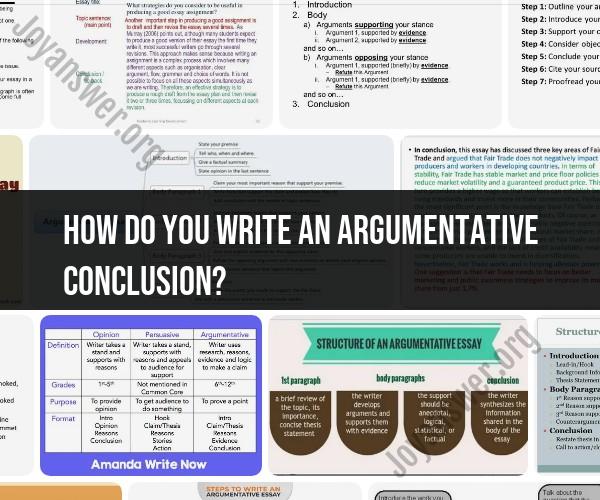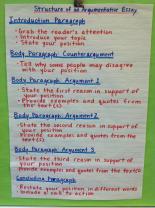How do you write an argumentative conclusion?
Writing an effective conclusion for an argumentative essay is essential because it leaves a lasting impression on your readers and reinforces your key points. Here are some strategies to help you write a strong argumentative conclusion:
Restate Your Thesis Statement: Begin your conclusion by restating your thesis statement in a rephrased form. This reminds your readers of the main argument you presented in your essay. Avoid simply copying the thesis; instead, rephrase it to provide a fresh perspective.
Summarize Key Points: Summarize the main points or arguments you made in your essay. Keep this summary concise and focused on the most critical aspects of your argument. This helps reinforce your argument's strength.
Address Counterarguments: Acknowledge and briefly address any counterarguments or opposing viewpoints that you discussed in your essay. This demonstrates that you've considered other perspectives and strengthens your position by refuting them.
Emphasize the Significance: Explain why your argument is significant and relevant. Connect your argument to broader implications, real-world applications, or the importance of the issue you've discussed. Help readers understand why your position matters.
Call to Action or Future Consideration: Depending on the nature of your argument, you might end your conclusion with a call to action, urging readers to take specific steps or consider a particular solution. Alternatively, you can discuss the future implications or questions your argument raises.
Provide Closure: Offer closure to your essay by summarizing your argument in a way that brings the discussion to a satisfying conclusion. This can be done by circling back to your introduction or by providing a closing thought that leaves a lasting impression.
Avoid Introducing New Information: Your conclusion is not the place to introduce new arguments, evidence, or information that was not discussed in the main body of your essay. Stick to summarizing and reinforcing your existing points.
Maintain a Positive Tone: Keep a positive and confident tone in your conclusion. Even if your argument has been contentious, maintain professionalism and avoid ending with hostility or bitterness.
Be Concise: Keep your conclusion concise and to the point. Avoid unnecessary repetition or filler content. A well-crafted conclusion is clear and succinct.
Craft a Memorable Closing Sentence: Your final sentence should leave a lasting impression. Consider using a thought-provoking quote, a rhetorical question, or a powerful statement that encapsulates your argument.
Remember that your conclusion should leave your readers with a sense of closure and a clear understanding of your argument's strength and significance. Take the time to revise and polish your conclusion to make it as impactful as possible.












